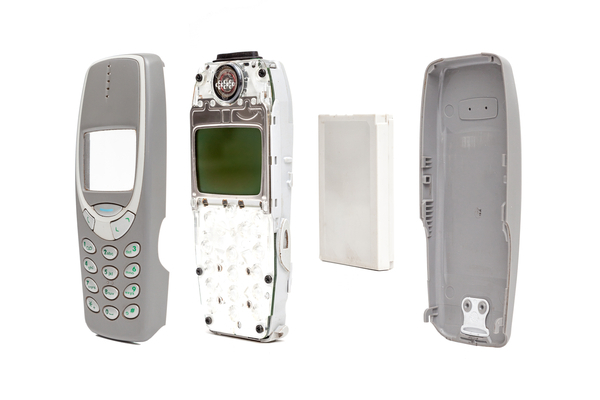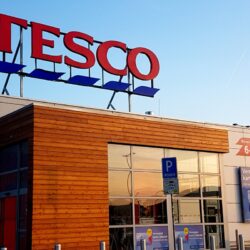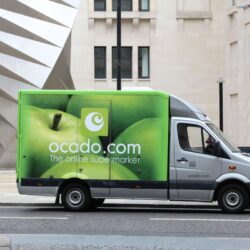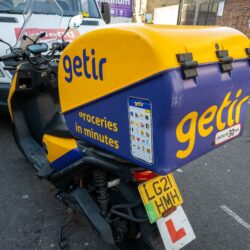Last month two companies came back from the dead, as Nokia and Blackberry revealed their “new” old phones.
The launch of Nokia‘s revamped classic 3310 has seldom left the spotlight since it was revealed, and BlackBerry‘s KeyOne is hot on its heels.
Nostalgia has clearly worked its magic on social media, but these new products add some significant momentum to a trend which has seen nostalgia translate effectively to the retail world.
The technology market is driven by relentless advancement and innovation, so it is hard to imagine what place nostalgia has within it. However, Nintendo‘s NES Classic and Kodac‘s recent Super 8 camera have proven that nostalgia could in fact be big business.
Figures from eBay show that even before the Nokia‘s announcement, sales of old models were nothing to be sniffed at. 13,000 Nokia 3310s were sold in the 12 months to September 2016, and November saw a 23 per cent lift in searches for the model as people browsed for Christmas.
“At eBay, we know first-hand how the UK shops. Fuelled by the growing trend for nostalgia, we can see a considerable market for both buyers and sellers of retro goods,” eBay UK‘s head of electronics sales Keith Metcalfe said.
“Even the technology industry – usually focused on the latest innovations – can‘t escape the trend for nostalgia.
“As Nokia has proved with the re–launch of the favoured classic 3310 handset, this passion for vintage tech shows that brand loyalty is still very much alive
READ MORE: Apple takes Samsung’s crown as best selling smartphone retailer
“At a time of such high competition, it‘s the retailers who are able to respond to the trends as soon as they emerge, who will ensure they‘re selling to a receptive audience – whether it‘s the launch of new product or the revival of an old favourite.”
The market holds potential, but how far can nostalgia go before the limitations of the technology are outshone by their contemporary counterparts?
Recent data from Google and Kantar TNS‘s five-year study found that the number of people in the UK who own a smartphone has exploded in the last five years.
Since 2012 the number has risen by 70 per cent, with three in four people now owning a smartphone.
Google UK‘s consumer markets managing director David Black said: “Nostalgia will always be a small percentage of technology retail, just look at the increased sales of vinyl, and therefore the corresponding sales of record players.
“However, this yearning for nostalgia sits alongside a growing adoption of new technology from smart TVs to smartphones.
“I wouldn‘t say it‘s a route to mainstream success, but nostalgic tech can work as a niche product that that sits alongside a widespread adoption of new and groundbreaking tech.
“Nostalgia will always be a small percentage of technology retail”
“For instance, most people investing in a feature phone are buying this alongside a smartphone.
“Most people who are in the market for nostalgia aren‘t looking for an either or when it comes to that or new tech, but view the nostalgic tech as an additional nice to have alongside.”
Although nostalgia is clearly a key component of these new offerings, it would be naive to assume these veteran companies didn‘t comprehend the limitations of that as a pull.
Aside from being incredibly marketable as it utilises a once-monumental brand identity, these phones tap into an emerging mobile phone market.
Mobiles.co.uk‘s mobile expert Andrew Cartledge explained: “Although we think of mobile phones as a relatively new invention, they‘ve now been around long enough to have amassed their own individual history.
“Nostalgia is a powerful draw, and customers are likely to want to revisit the technology of previous years that they may have a certain affection for.
“Although the Nokia 3310 and BlackBerry KeyOne may tap into this sentiment, they also have terrific functionality to back this up, making them strong contenders in today‘s mobile market.
“It‘s interesting that in the age of the smartphone, it‘s a basic ‘features‘ phone that is leading Nokia‘s return to the market.
READ MORE: With Samsung licking its wounds, can Google finally ignite retail sales?
“Obviously, the return of this retro favourite won‘t cause the smartphone to lose any sleep, but for those looking for a glovebox spare, a festival phone, or a way to keep in touch with the kids, this attractive and colourful handset is likely to be their first port of call.”
Smartphones have had fairly poor press of late, with the exploding Samsungs to the wireless headphones of Apple’s iPhone 7.
With two once great brands releasing new products with a buzz to rival contemporary flagship phones, should the mobile phone industry be worried?
Former Tesco deputy chief executive Tim Mason, who now runs Eagle Eye, doesn‘t think smartphones have much to fret about.
“Even our memories have gone digital. In life, the smartphone is a catalyst which has changed how we behave, bringing together the physical and digital worlds.””‹
“While the tech nostalgia coming from MWC certainly says a lot about the consumer desire for simplicity, I doubt whether the launch of the Nokia 3310 will drastically impact the retail industry in the future,” he said.
“The reason for this is because retailers and shoppers are moving further and further into the digital realm. And a smartphone-enriched shopping experience is all about making life more simple.
“The resurgence of these old giants, where customers are cut off from the digital world, would be a threat for the retailer if they really took hold.
“However, we all now operate behind a digital layer everywhere we go, from messaging and music to media and maps.
“Even our memories have gone digital. In life, the smartphone is a catalyst which has changed how we behave, bringing together the physical and digital worlds.
“While we may be harking back to the age of Snake on some level, the smartphone, and the growth of opportunities it brings to the retail sector, is where the real potential lies.”
Click here to sign up to Retail Gazette’s free daily email newsletter


















